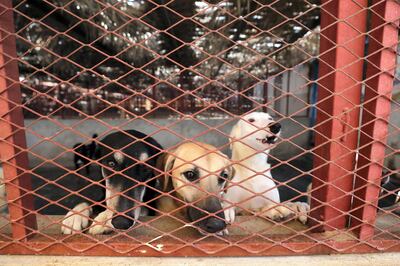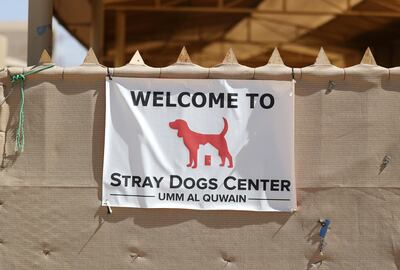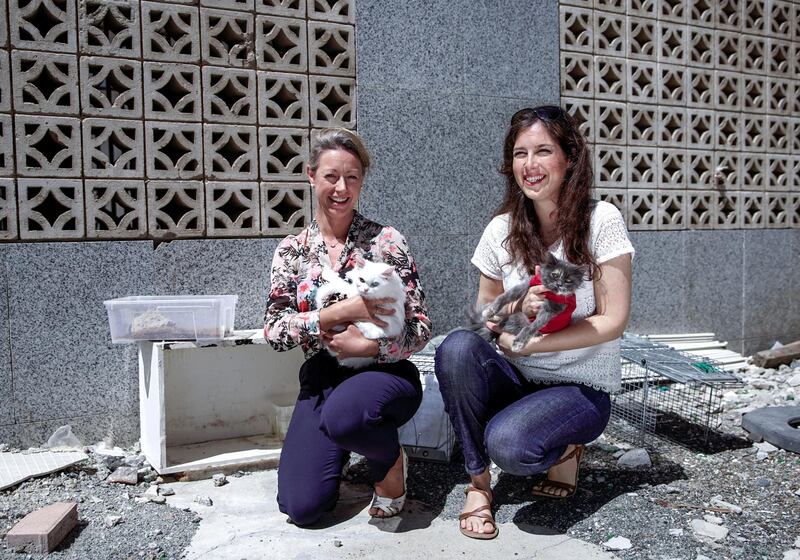Animal rescuers in the UAE are struggling to keep up with the number of animals being abandoned as the country fights the Covid-19 pandemic.
Shelters have reported a surge in surrendered pets since the start of the outbreak.
Some owners erroneously fear they could catch the virus from their cats or dogs, and others cannot afford to keep pets due to job losses and salary cuts.
Many residents who foster stray and abandoned animals cannot take in any more furry friends due to financial hardships.
“We used to use our extra for rescuing, whereas now there is no extra,” said Rachael Ryder, an Abu Dhabi rescuer, who is surviving on a 50 per cent salary cut.

Ms Ryder estimates she has spent around Dh60,000 on veterinary bills to treat rescued animals she has picked from the street near Mina Port over the last two years.
She is still trying to do her best but pets are being “tossed out right, left and centre”.
Abandoned animals are the most difficult to deal with, because they often come with significant health issues.
“Most of them are in a really bad condition, with parvo, ringworm, eye infections, ear mites, injuries because they don’t know how to live on the streets, malnourished, dehydrated and with worm infestations,” she said.
“And those with long hair have to be shaved. And these bills can go into the thousands. And then at the end of it, what do you do with a Persian or a Turkish angora? You can’t put it back on the streets.”
If Ms Ryder cannot find homes for abandoned pets in the UAE, she tries to send them abroad to new families.
Rehoming them in foreign countries is not possible at the moment due to travel restrictions imposed in response to the pandemic.
Simone Bester, of the Mangrove Beach Cats rescue group, said she can continue with her work as a salary cut has not come her way.
But some in her group have faced a reduction in incomes, which has impacted their ability to help.

They rescue cats in a small stretch of Reem Island and have noticed an upswing in dumped pets since the start of the pandemic.
“Just before the restrictions came in, my husband and I picked up two Persian mums with eight kittens that somebody had dumped just like that,” said the South African.
“Between my husband and I we have 23 cats in different foster homes that need to find homes in the next few months. We normally average between five and seven.”
She said the financial responsibility of foster cats lay with the rescuer, who was expected to shoulder the entire cost of any treatment until a new home is found for the animal.
But that has also become harder as a result of the pandemic.
“There are less resources and less people to adopt, because people are not sure about the future or their jobs,” she said.
Ms Bester fears for the future, but tries to help in ways she can afford to.
“You have to realise you can’t help them all. There are hundreds of thousands of strays in Abu Dhabi and we try and do what we can, with what we have, where we are,” she said.
“If I don’t tell myself that mantra, I would go nuts.”







